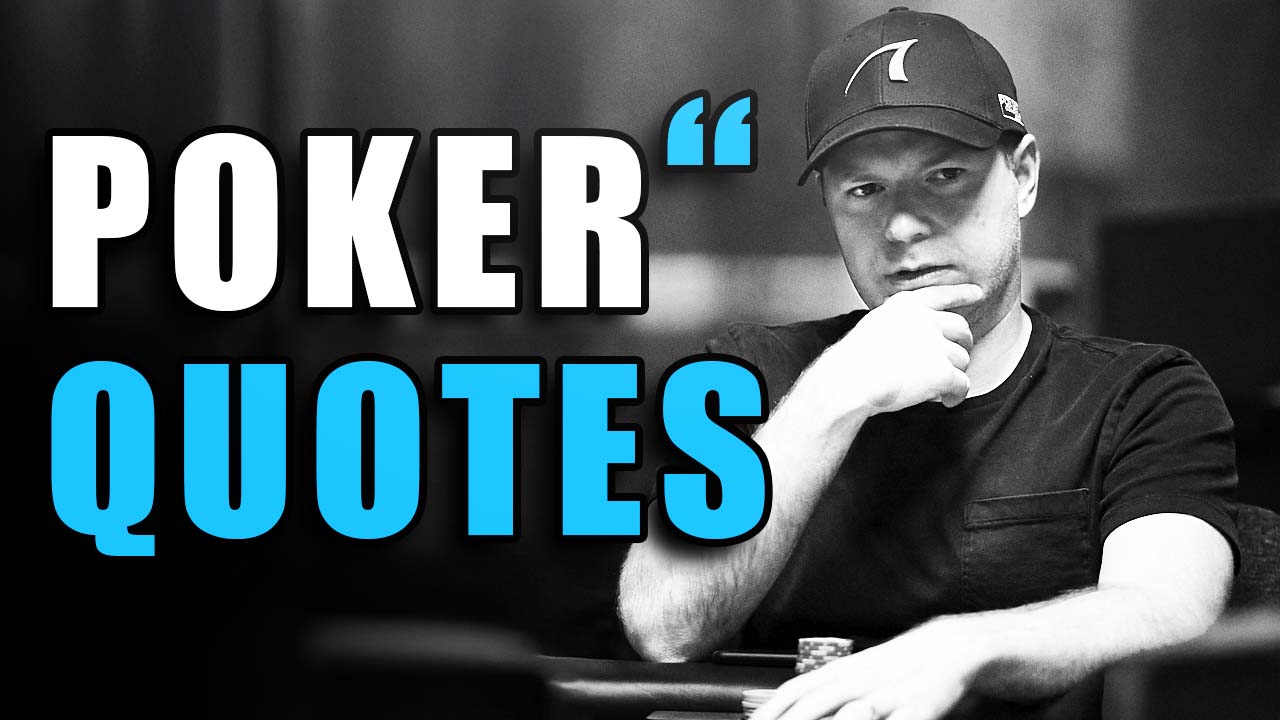If you asked an average person, with limited understanding of poker rules, what the game is, they would probably say it’s just another gambling game. As a poker player, however, you would probably know better.
For many years, poker players didn’t care about the definition too much. After all, it served their agenda if average people thought there was no skill involved in poker at all.
More recently, however, poker has been widely popularized, and the question of its status as a game or a sport has been asked more often.
So, can poker be considered a sport? Is it just a skill game? Is it a gambling game, after all? We aim to find answers to that question by comparing poker with traditional sports, gambling games, and more.
What Constitutes a Sport?
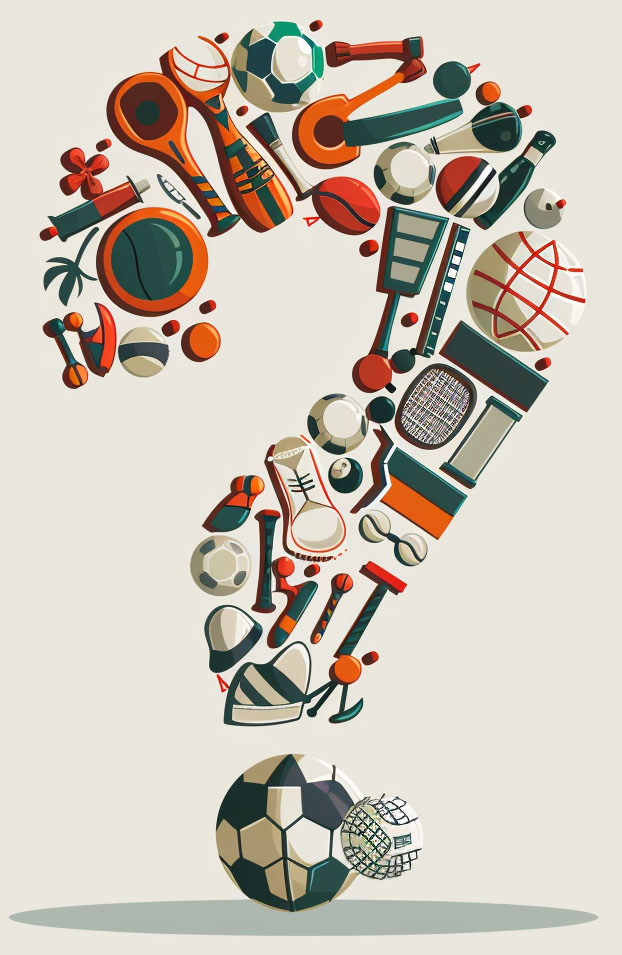
Before we can definitively say if poker is a sport, we have to define sports first, and the definitions can vary a bit depending on where you look.
Different dictionaries have different definitions of the word “sport,” but they mostly agree that it is an activity that includes entertainment, competition, skill, and physical exertion.
For the most part, sports include all of these elements across the board, although the physical exertion element is not equally represented in all sports.
For example, pool or bowling require much less physical exertion than football or basketball but are accepted as sports without question.
So, let’s consider the different elements of sports and how they apply to poker.
Entertainment Value of Poker
Poker is the favorite pastime for hundreds of thousands of people and one of the most entertaining games.
If you are a poker player, you probably know how easy it is to get mentally lost in a poker game. Eight hours at a poker table often seems like two hours doing something else.
Even compared to many traditional sports, poker can be extremely entertaining, especially for those who love the game.
The entertainment value of the game is undeniable even as a spectator sport, as thousands of people regularly tune in to watch Texas Hold’em on TV or online live streams.
Whether you enjoy watching poker or not, there is no denying that many people enjoy it and that the game is fun to play and watch for a big chunk of people out there.
Poker as a Competitive Game
In terms of competition, tournament poker, in particular, is an extremely competitive activity that has all the elements of an individual sport like tennis.
Players come into poker tournaments looking to beat their opponents and even pay their entry fees for tournaments.
Whether we are talking about a low-stakes open event with thousands of entries or an ultra-high-stakes event with just a few dozen elite players, the competition is very real.
At the very highest level, players even play events populated mostly by the best players out there to test their skills, compete against the very best, and try to win coveted trophies and titles to build their poker legacy.
Skill Element in Poker
Recreational poker players often say that poker is all luck, but the existence of skill in poker is undeniable. Skill dominates in poker, and there is no question about it.
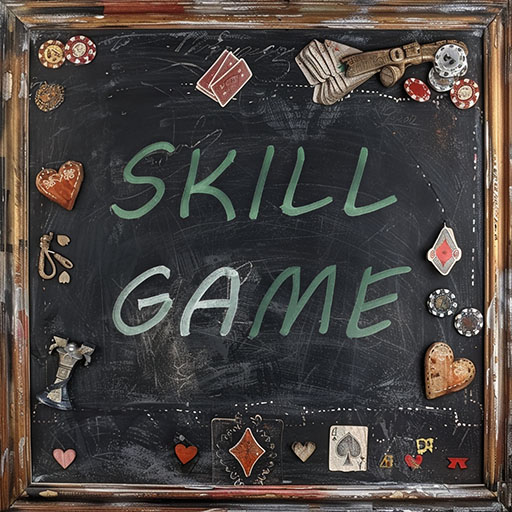
Whether you want to look at the results of the best players out there, computer simulations, or any other evidence, the impact of skill in poker is undeniable.
While it may take some time for the impact of skill to show in a player’s results, the long-term impact of skill makes all the difference.
To be good at poker, you must learn different concepts, practice them away from the table, apply them correctly at the table, and not falter under pressure, all of which makes poker similar to other sports.
Does Poker Require Physical Exertion?
The last of the four elements of sports that we mentioned in this article is physical exertion, and that’s probably the most questionable.
If you have ever played a long poker session or a live tournament with multiple days, you probably know how exhausting such events can be.
While things like strength and agility don’t come into play, physical and mental endurance are key to being a successful poker player.
Playing at the World Series of Poker, for instance, many elite poker players end up spending hundreds of hours playing poker over the course of just a month, and the effects of the exertion can be felt.
So, while poker may not require physical attributes like strength, it can be argued that it is physically more exerting than pool, darts, or bowling, all of which fall into the sports category.
Why Poker Isn’t a Gambling Game
In the previous sections, we have compared poker to traditional sports and found different ways it does and does not resemble more typical sports.
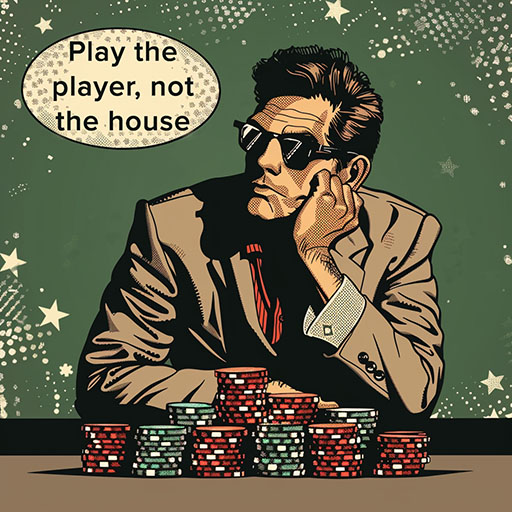
And while poker checks quite a few marks in that part of the debate, there are still many who will tell you that poker is nothing more than a gambling game.
Because it is often played in casinos, people tend to classify poker as a gambling game without going too deep into the weeds or even knowing the rules of the game.
Instead, they simply classify poker as a gambling game as it is played at the same venue as other gambling games like blackjack, roulette, or craps.
But is poker just another gambling game? Of course not! There are many reasons why that’s not the case, so let’s dig into those a bit deeper.
Impact of Luck in Poker
Perhaps the biggest reason people mix poker with gambling games is because there is seemingly a big impact of luck in poker.
A single card can indeed change the short-term results of the game significantly, and a player can lose even if they played perfect GTO poker.
But isn’t that true for sports as well? A single unlucky moment in a soccer game can change the course of the match, and a single missed three-pointer can be all the difference between winning or losing a basketball game.
Those who don’t support the idea of poker as a sport will tell you that sports aren’t just about those moments, but neither is poker!
In fact, the thing they get wrong is how poker is and should be scored. Real poker players don’t care about the result of a single hand of poker or a single poker tournament.
Instead, they track their results over long periods of time, measure success in statistical terms like bb/100 and ROI, and only concern themselves with the long-term results.
And just like the elite athletes out there, the best poker players come out on top repeatedly, reaping the financial benefit of their play year after year.
Poker vs. Games of Chance
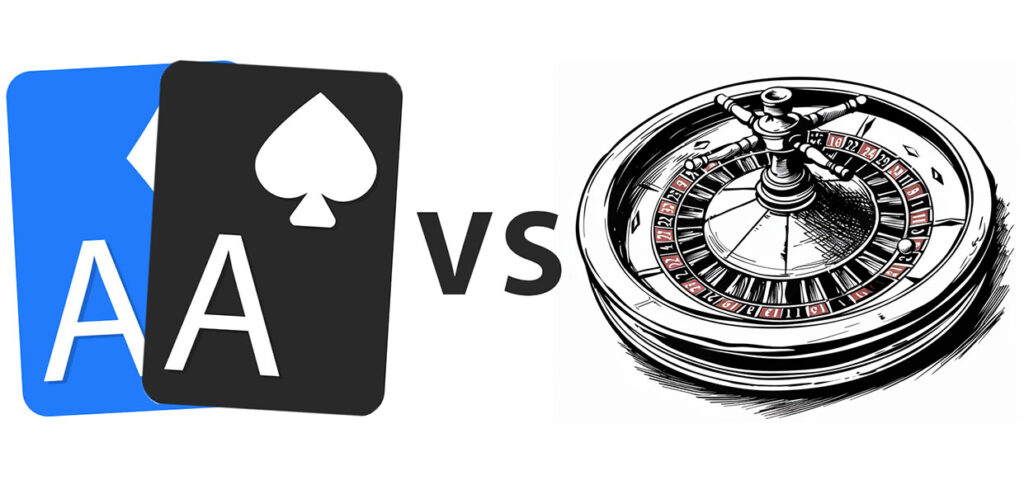
Not only is skill not the determining factor in poker like it is in gambling games, but the game itself is not played against the same opponent.
All gambling games like slots, craps, and roulette share one common thing; the fact they are all played against the house.
These games are created to give the casino an inherent statistical advantage that the player cannot overcome regardless of strategy.
If you play blackjack the best possible way, you will lose very little. If you play slots the best possible way, you will lose quite a bit more. But in either case, over the long run, you will lose!
Poker, on the other hand, pits players against other players, with the house completely left out of the results of the game.
Instead of playing against you, the house charges a small percentage of each pot or tournament buyin and allows players to play the game and decide on the winner.
Thus, there is no need to create a game with an inherent statistical advantage for anyone, and that’s the only way poker can exist.
Once nine poker players sit down at the poker tables, it is their decisions that make the difference, and those decisions can be made in many different ways.
So, not only is poker not the same as blackjack or roulette, but it is not even in the same category as it is not one of the pit games played against the house.
Is Poker a Sport or Not?
At the end of the day, poker is not considered a sport in the vast majority of countries, at least not officially.
While the game shares many elements with typical sports and differs from gambling games in every way possible, the prejudice against it may leave it out of the sports category for many years.
Yet, competitive poker is on the rise, and millions of people worldwide enjoy the game for the thrills of competition and the poker strategy more than the money, which is what makes a sport at the end of the day.
You may not see poker included in the Olympics anytime soon, but if you love the game, you will find plenty of like-minded individuals to share that love and appreciation for poker with anywhere in the world.





